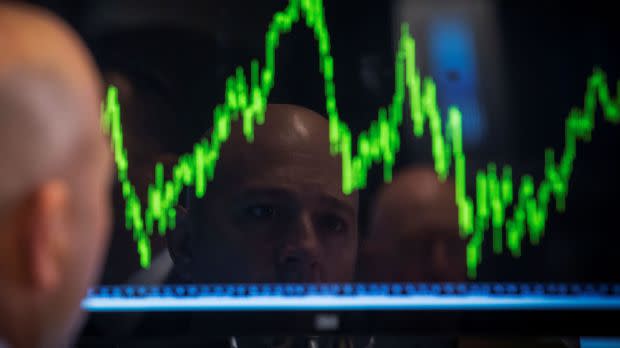Does buying the dip really work as a stock trading strategy?

When the omicron variant started making headlines and stocks hit the skids on Nov. 26, some traders posting on Reddit’s WallStreetBets group said it was a Black Friday sale. Were corporate shares really on discount?
Redditors aren’t the only ones looking to buy the dip, as the investing strategy is known. Multiple surveys indicate that the covid-19 pandemic enticed a new generation of traders (pdf). The chance to buy stocks when they dip in price was the third-most-popular reason for opening a new account in 2020, according to survey by the Financial Industry Regulatory Authority (FINRA) and the National Opinion Research Center at the University of Chicago. (Saving for retirement and the ability to invest small amounts of money were the top two reasons.)
Getting more people into investing could be a good thing. Long-term holdings of stocks can be an important wealth generator, and getting a greater share of society involved in financial markets—in a responsible way—could help reduce the wealth gap, giving more people opportunities to save for a home, retire, or afford education. But as social media helps bring in and inform a new wave of traders, a key question is whether they are getting good advice or getting set up for disappointment.
There are signs that retail investors were indeed feeling bullish on Nov. 26, when the S&P 500 Index of large US stocks fell 2.3%, the biggest drop since January. Mentions of call options—representing a bet that an asset will go up in price—on WallStreetBets far exceeded those of put options—which represent a wager that something will fall in value—in the days that followed, according to data compiled by Quiver Quantitative, a provider of alternative data. While it's common for call options to exceed puts, Quiver Quantitative data show the ratio of calls to puts was trending bullishly toward calls.
Other research also suggests individual investors went on a buying spree when stocks dropped on Nov. 30. Retail traders snapped up a single-day record of around $2 billion of securities—mainly exchange-traded funds and large tech companies—according to Vanda Research cited by Bloomberg.
Is buying the dip a good idea?
Buying the dip isn't as straightforward as it sounds. If it takes too long for the market to drop in price, you could end up sitting on cash that's being eroded by inflation instead of benefitting from a rising market and receiving dividends and coupon payments from stocks and bonds. Just because an asset has fallen in price doesn't mean it can't drop even more. An analysis by Northwestern Mutual, a financial services firm, found that getting your money invested right away (lump-sum) usually returns more than robotically spreading it out over time (dollar-cost averaging).
Other research signals buying the dip may not be so bad. Thomas Shohfi from the Rensselaer Polytechnic Institute and Majeed Simaan from the Stevens Institute of Technology compared lump-sum investing and dollar-cost averaging. Then they analyzed whether buying the dip via an S&P 500 index fund would have made more money in those scenarios. They found that, historically, buying the dip resulted in more wealth than a lump-sum investment and lower wealth than just systematically investing every month. But they also found that buying the dip could provide lower risk-adjusted returns.
"What that means is that strategy gives me good returns with lower risk," Simaan said in an email. "Intuitively, it is equivalent to a policy that yields good returns while reducing the anxiety of watching your portfolio exhibit large drops over time."
While buying the dip is no sure thing, it might not be so bad if it attracts more people to long-term investing in the US stock market, which has shown itself to be a critical way to build wealth over time.
Sign up for the Quartz Daily Brief, our free daily newsletter with the world’s most important and interesting news.
More stories from Quartz:
India’s omicron cases show the variant was global even before the travel bans kicked in
The US Supreme Court is considering the economic impact of abortion
